-
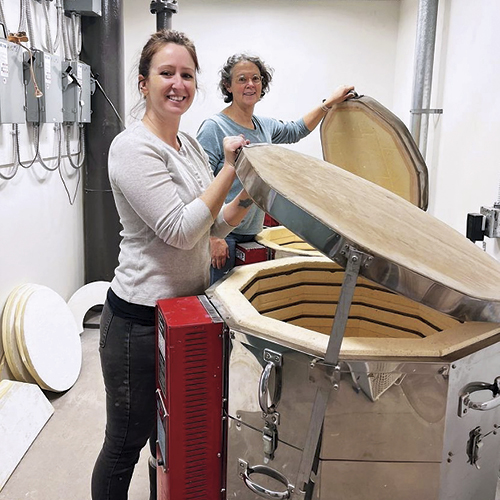 In the Studio: Side Hustles: Kiln Share
In the Studio: Side Hustles: Kiln Share -
 In the Studio: Maker Q&A: Meet Rory FosterAs an observer of nature, I pay attention to how things look and how they make me feel. These experiences guide me when I am starting a piece.
In the Studio: Maker Q&A: Meet Rory FosterAs an observer of nature, I pay attention to how things look and how they make me feel. These experiences guide me when I am starting a piece. -
 Editor's Note: Punctuation
Editor's Note: Punctuation -
 Pottery Illustrated: Templates for HandbuildingIn addition to the templates found in articles by Margaret Kinkeade, Corinne Lent, and Sunshine Cobb, the above templates can be scaled-up on a copy machine to fit any dimensions you prefer for handbuilding functional vessels.
Pottery Illustrated: Templates for HandbuildingIn addition to the templates found in articles by Margaret Kinkeade, Corinne Lent, and Sunshine Cobb, the above templates can be scaled-up on a copy machine to fit any dimensions you prefer for handbuilding functional vessels. -
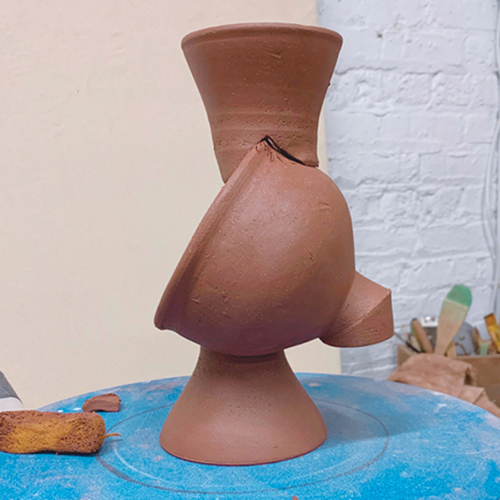 The Constructed VaseThe objects that we surround ourselves with might say more about us than we have ever imagined.
The Constructed VaseThe objects that we surround ourselves with might say more about us than we have ever imagined. -
 In the Potter’s Kitchen: Match StrikerBesides being adorable and practical, I had the most fun working out the match-striker design. I had a picture in my head: the perfect match striker.
In the Potter’s Kitchen: Match StrikerBesides being adorable and practical, I had the most fun working out the match-striker design. I had a picture in my head: the perfect match striker. -
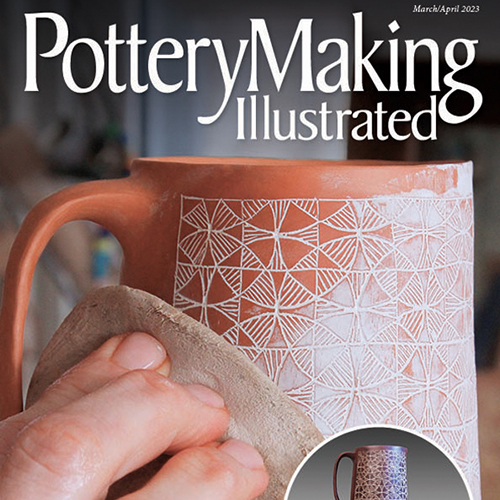 Supporters of Pottery Making Illustrated - Mar/Apr 2023
Supporters of Pottery Making Illustrated - Mar/Apr 2023 -
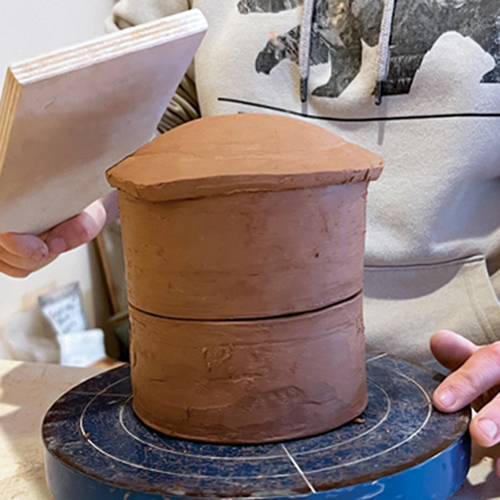 Lidded Stacked JarWhen making work, I strive to highlight the beauty of art that we can hold, live with in our homes, and touch to our lips. The rituals surrounding the simple moments of everyday life are where the most meaningful connections to art can be found.
Lidded Stacked JarWhen making work, I strive to highlight the beauty of art that we can hold, live with in our homes, and touch to our lips. The rituals surrounding the simple moments of everyday life are where the most meaningful connections to art can be found. -
 Routine & Ritual: Ceramic Casita ShrinesOne of my favorite handbuilding projects is my ceramic casita shrine shelf. They designate a special space in your home that you can visit whenever you need to escape, meditate, or give energy to a person or idea that’s been on your mind.
Routine & Ritual: Ceramic Casita ShrinesOne of my favorite handbuilding projects is my ceramic casita shrine shelf. They designate a special space in your home that you can visit whenever you need to escape, meditate, or give energy to a person or idea that’s been on your mind. -
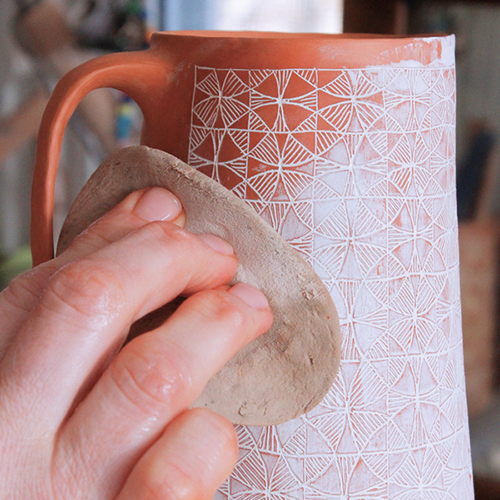 Inspiration Rooted in HeirloomsInterlacing drawing with tactile handbuilding techniques in the vessels that I make allows me to participate in that ongoing conversation at my table as well as in other homes where my work is found/used.
Inspiration Rooted in HeirloomsInterlacing drawing with tactile handbuilding techniques in the vessels that I make allows me to participate in that ongoing conversation at my table as well as in other homes where my work is found/used. -
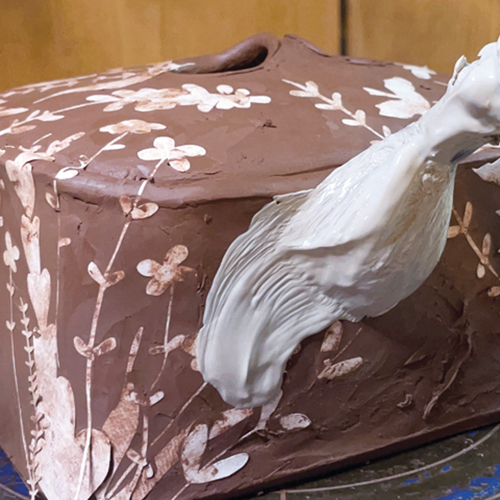 Making a Pillow-Lidded BoxThis box design was just a starting point for me. The techniques I used in this one piece opened a variety of paths that can be translated endlessly into other pieces.
Making a Pillow-Lidded BoxThis box design was just a starting point for me. The techniques I used in this one piece opened a variety of paths that can be translated endlessly into other pieces. -
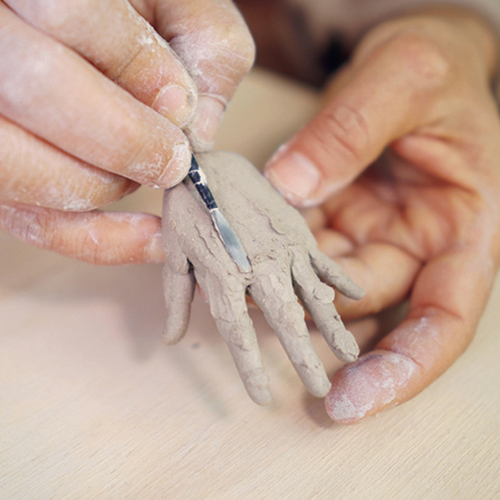 Sculpting Figurative HandsHands can activate the story of a body. Like developing the gaze on a face, positioning the hands can take me quite a long time as I play and explore the myriad possibilities that could actuate the gesture in unique and unexpected ways.
Sculpting Figurative HandsHands can activate the story of a body. Like developing the gaze on a face, positioning the hands can take me quite a long time as I play and explore the myriad possibilities that could actuate the gesture in unique and unexpected ways. -
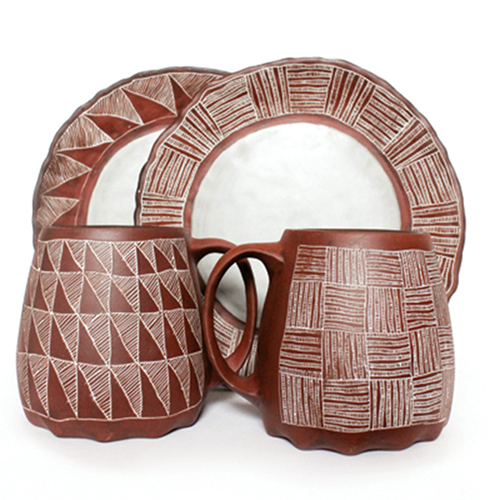 In the Studio: Maker Q&A: Meet Margaret KinkeadeMy forms are relatively uncomplicated, and I take inspiration from everything from the proportions of paper coffee cups to estate-sale treasures.
In the Studio: Maker Q&A: Meet Margaret KinkeadeMy forms are relatively uncomplicated, and I take inspiration from everything from the proportions of paper coffee cups to estate-sale treasures. -
 In the Studio: Side Hustles: How to Write How-TosNo matter which one, writing a well-focused how-to guide will draw attention to you, your process, and your ceramics.
In the Studio: Side Hustles: How to Write How-TosNo matter which one, writing a well-focused how-to guide will draw attention to you, your process, and your ceramics. -
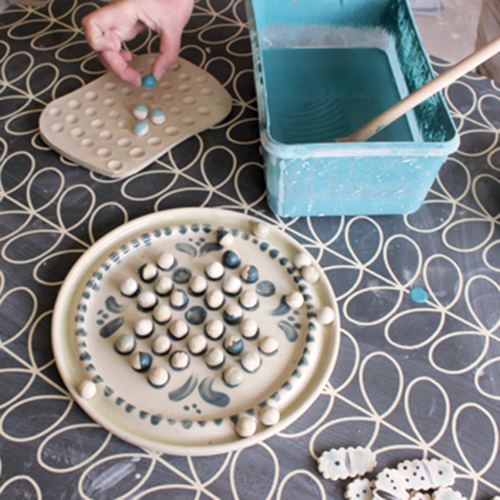 In the Studio: Handbuilt GamesI love surface pattern and working with slips and oxides and am able to use these materials to get creative with the paintbrush when making my clay games.
In the Studio: Handbuilt GamesI love surface pattern and working with slips and oxides and am able to use these materials to get creative with the paintbrush when making my clay games. -
 Editor's Note: Just Apply!The artists in this issue, who all focus on handbuilding as their primary forming method, did just that, and their efforts lay on the pages that follow.
Editor's Note: Just Apply!The artists in this issue, who all focus on handbuilding as their primary forming method, did just that, and their efforts lay on the pages that follow. -
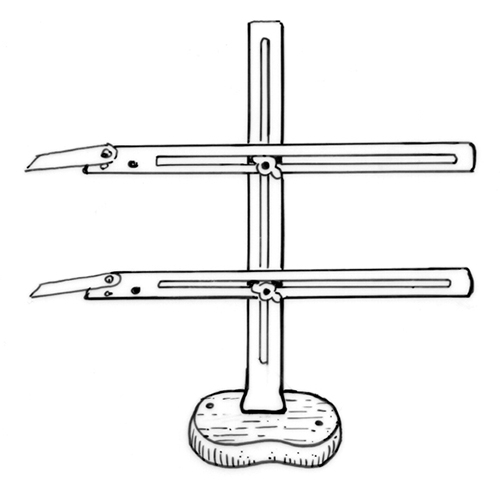 Pottery Illustrated: Clay Measuring DevicesIllustrated clay measuring devices.
Pottery Illustrated: Clay Measuring DevicesIllustrated clay measuring devices. -
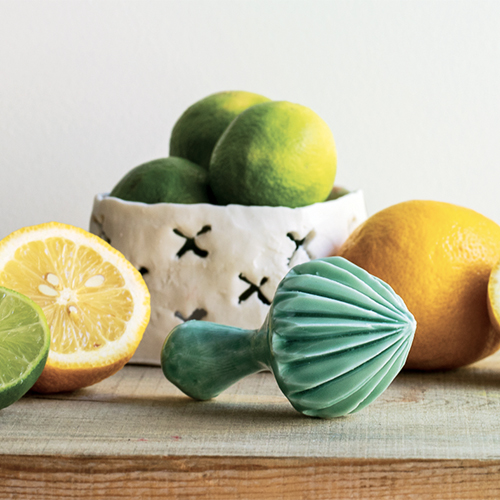 In the Potter’s Kitchen: Citrus ReamerA good citrus reamer is an indispensable kitchen tool. From making cocktails to citrusy desserts to salad dressings, my ceramic reamers are some of my most unexpected kitchen treasures.
In the Potter’s Kitchen: Citrus ReamerA good citrus reamer is an indispensable kitchen tool. From making cocktails to citrusy desserts to salad dressings, my ceramic reamers are some of my most unexpected kitchen treasures. -
 Creating Reverse FacetsWhat I came up with were these elegant facets that created a dynamic rim but also literally pointed my eye down to my decorative surface.
Creating Reverse FacetsWhat I came up with were these elegant facets that created a dynamic rim but also literally pointed my eye down to my decorative surface. -
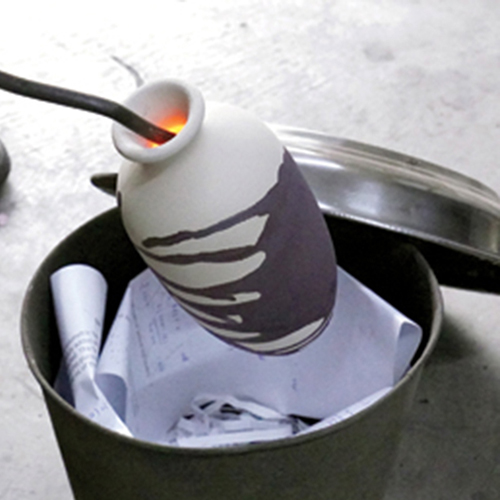 The Copper Matte Raku TechniqueRaku firing consists of heating the ceramic piece to the temperature required to melt any glaze on the surface, then removing the piece from the kiln while it is still red hot and any glaze is molten.
The Copper Matte Raku TechniqueRaku firing consists of heating the ceramic piece to the temperature required to melt any glaze on the surface, then removing the piece from the kiln while it is still red hot and any glaze is molten.
- «
- 11
- 12 (current)
- 13
- 14
- 15
- 16
- 17
- 18
- 19
- 20
- »
